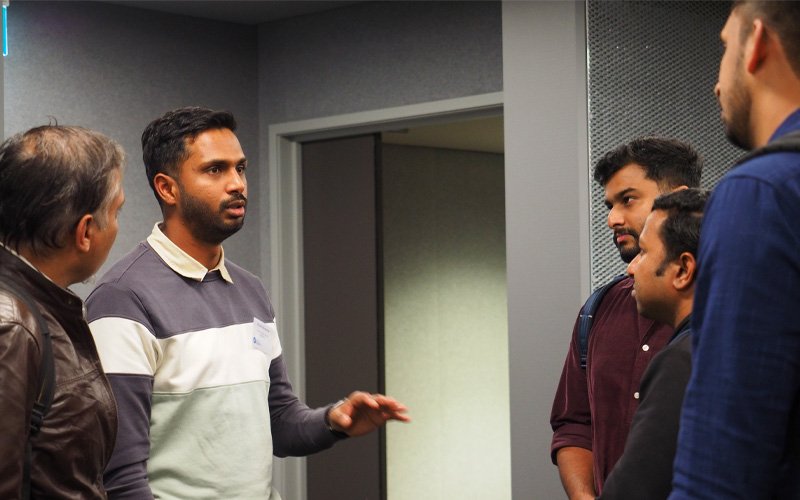17 Dec 2024
Engineers across Aotearoa are doing it tough, with a pipeline of projects that has all but dried up. Read about engineers’ experiences and what the work shortage has meant for them.
Vincent Selvakumar graduated in 2012 as a mechanical engineer, specialising in building services.
Six years later, Vincent left his native India and moved to Aotearoa New Zealand. He was on the job hunt when he joined SIGIE, the Special Interest Group for Immigrant Engineers – of which he has recently become Chair – attending one of their annual workshops. “It was very useful because there were things I didn't know, with different speakers sharing their own experience about how to gain local experience.” He says the workshop helped him tailor his CV, develop interview skills, and general expectations in the workplace in New Zealand.

Vincent Selvakumar talking with colleague at SIGIE’s Auckland 2024 workshop.
Vincent met his current employer at a conference where some of the SIGIE committee members were volunteering. That was 2019. Back then, there were plenty of jobs. He says things began to change around August this year. When asked what he thinks has brought on the downturn in work, Vincent replies, “I think one of the reasons is the high interest rates. If people don't build, they don't need our expertise.”
We should be supporting people who have just started their careers and might not be as financially stable as people who’ve been there for a long time.
Vincent says colleagues who went through the 2008 Global Financial Crisis think this time is as bad – if not worse – compared to then. Projects that have yet to break ground often carry a sense of uncertainty. “When you're waiting for a project to commence, that's the point where the client might pause and think, ‘Hold on, let me check if I have enough resources to see this through,’” he explains.
He thinks it could take up to six months for the work to begin to come in again as the same levels as before Covid – but hopefully sooner.
What then for engineers until things look brighter? “Personally, I think we must ride out the storm. We should be supporting people who have just started their careers and might not be as financially stable as people who’ve been there for a long time.” He gives the example of working from home, so workers can save on commuting. “These are small things, but it could make a difference to them.”
Vincent also thinks “listening” to younger colleagues is crucial. “We have to keep them motivated because this could be the first time they're encountering such a situation and it could be challenging for them,” he says.
Find out more about the impact of the engineering work shortage.




